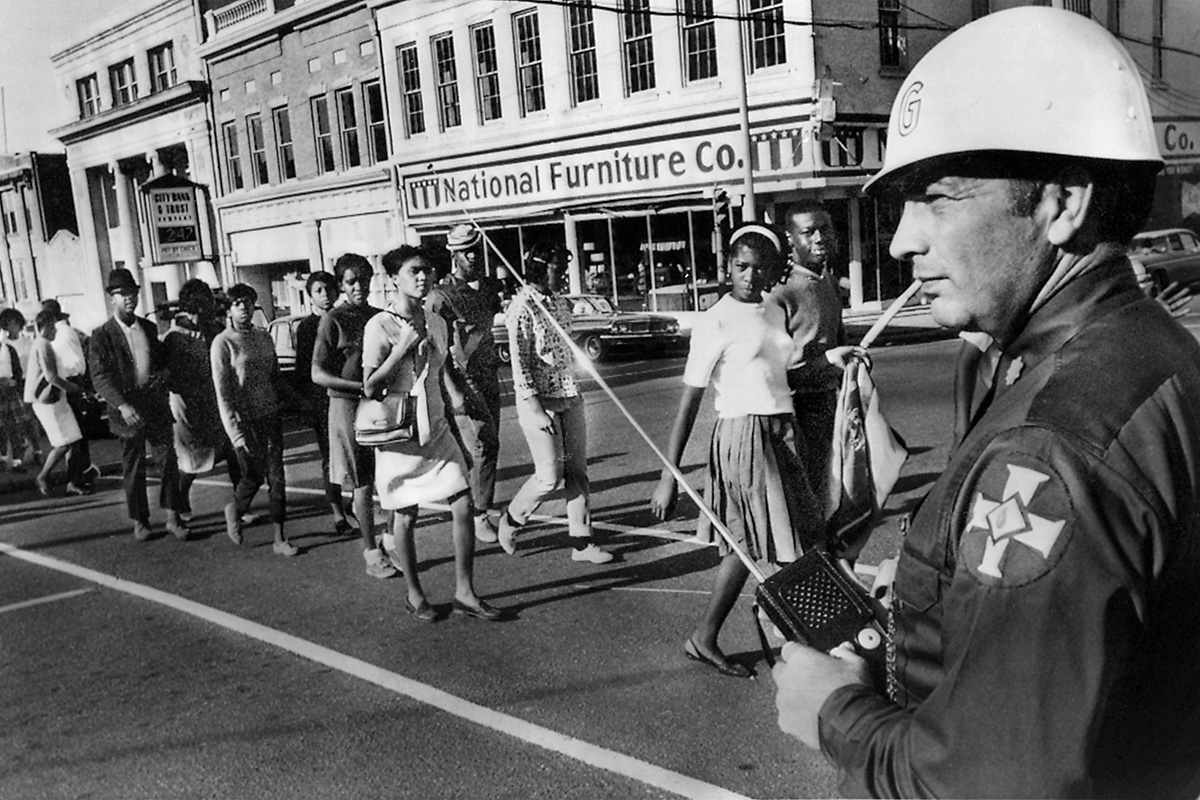Settlers built Natchez as one of the oldest cities in Mississippi, around what was once the French-established Fort Rosalie trading post as far back as 1716. Today, the historic city is widely known for stately antebellum plantation homes that have formed a foundation for its tourism industry.
However, those centuries-old homes, and the wealth behind their construction, came at tremendous human cost, with the city’s prosperity built upon the backs of enslaved Black Americans. Even after slavery’s end, Natchez served as a substantial resistance center during the Civil Rights Movement, both for those who fought for the rights of Black Americans and for those who violently fought against them.
“There are a lot of people who believe that Natchez’ historic homes helped save Natchez 90 years ago (during the Great Depression) and brought wealth to the city through its tourism industry,” Roscoe Barnes III, cultural heritage and tourism manager at Visit Natchez, says.
“However, just as many people have criticized the city for those historic homes, saying the antebellum plantation houses served as a celebration of the Confederacy with people praising that time period without acknowledging how those homes were built and cared for and how that wealth came to be.
“It’s also a fact that Natchez is a place where the Ku Klux Klan proudly walked the streets throughout the Civil Rights Movement, threatening Black residents across the city.”
Great Strides in Mississippi, But …
Natchez and Mississippi as a whole have managed to make great strides since the days of the 1960s Civil Rights Movement. Among those accomplishments, Barnes says, are the changing of Mississippi’s state flag in 2020 and the opening of the Mississippi Civil Rights Museum and Museum of Mississippi History in Jackson as part of the state’s bicentennial in 2017.
During February, which has been honored as Black History Month since the 1970s, Visit Natchez is partnering with individuals and organizations throughout the city to celebrate the heroes of the Civil Rights Movement, as well as to ensure that Mississippians remember the city’s full history and recognize where it has been, how far it has come and how far there yet remains to go.
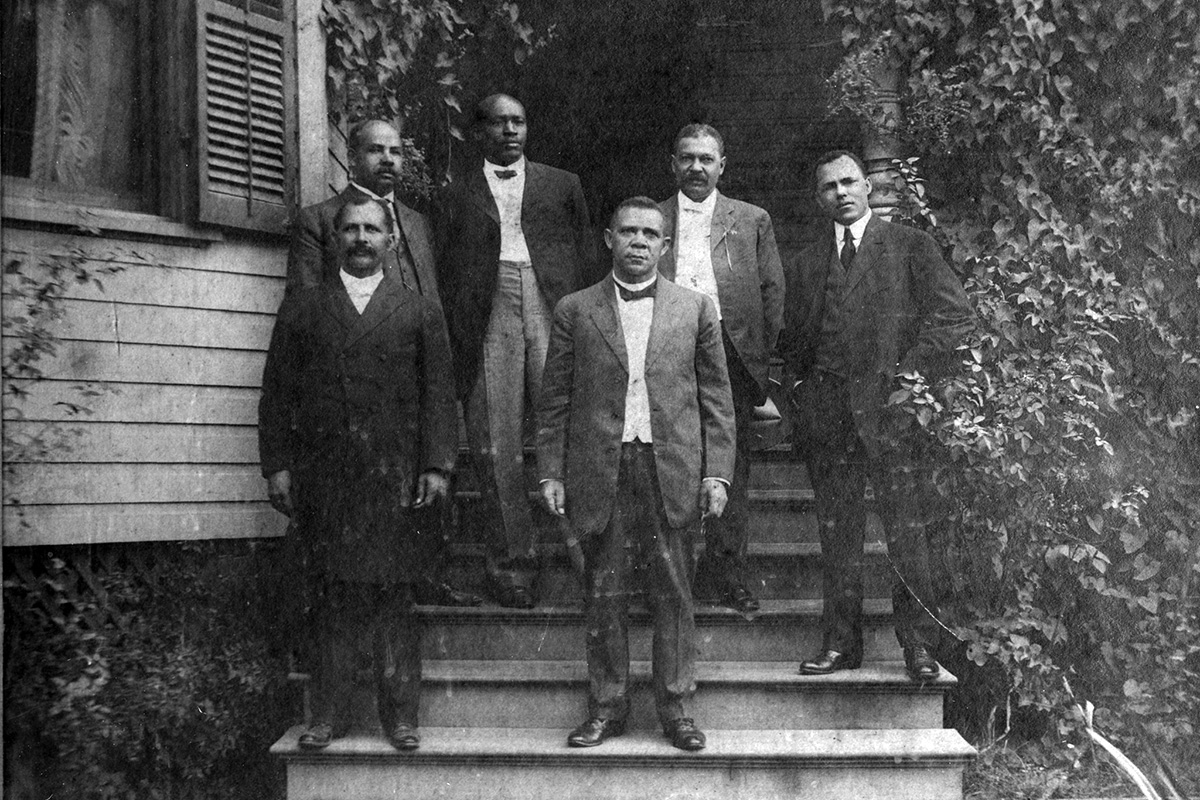
“Black History Month is an important event for our culture as Black Americans, for the state of Mississippi and for the nation,” Barnes says.
“We’ve come a long way but still have a ways to go and are striving towards building a better state and a better America. We have not reached perfection, but we are pressing. We have not arrived, but we have made progress. The history of the Civil Rights Movement in Natchez and beyond shows where we have made that progress, but there is still work to be done.”
Overview of Slavery and Civil Rights in Natchez
Natchez officially became part of the United States after the establishment of the Mississippi Territory in 1798 and became the first capital of Mississippi in 1817. In the days before the Civil War, the city was the site of the Forks of the Road slave market, which became one of the largest in the country outside of New Orleans, with roughly more than 1,000 enslaved Black people per year bought and sold in the market.
When the Civil War hit, Natchez remained largely unfazed due to a lack of strategic significance in the area, leaving numerous antebellum plantations and slave quarters intact to later form the backbone of the city’s tourism industry.
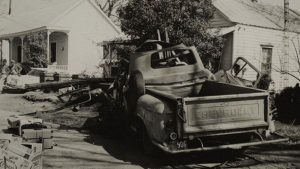
After the end of the Reconstruction era and the rise of anti-Black Jim Crow laws in the South, Natchez and nearby towns became prominent as a hotbed of resistance for both sides of the Civil Rights Movement, drawing violent white pushback. The city served as a Mississippi headquarters for the Deacons for Defense and Justice, a group of Black men who carried firearms to protect their families and civil-rights workers against violence from organizations such as the Ku Klux Klan and the Citizen’s Council. Car bombings took the life of civil-rights worker Wharlest Jackson and almost did the same to George Metcalf, though he survived, and Black-owned businesses faced the threat of firebombings and other acts of violence.
The attacks on Metcalfe and others led to the local branch of the National Association for the Advancement of Colored People issuing a list of demands to the Natchez Board of Aldermen, with NAACP field secretary Charles Evers helming the effort.
Among the NAACP’s demands were that the board denounce the Ku Klux Klan and the Citizens’ Council; end acts of brutality; desegregate schools, swimming pools and parks; provide protection for African American funerals; have stores hire more African American employees; implement new housing standards; and appoint African Americans to the local school board. The NAACP and other African American leaders also worked to enforce boycotts of white-owned businesses, picketing and holding marches to convince the board to meet their demands.
“Some say that the Natchez boycotts were some of the most successful movements in the country,” Barnes says. “Through them, the Black community effectively brought the city to its knees. They were a substantial part of the population, and when they stopped shopping businesses felt it. In the end, the board met many of their demands.
“Natchez may have been one of the harshest places in the state during the Civil Rights Movement, but leaders like Charles Evers and Bob Moses, and the efforts of groups like the Deacons, helped the Black community continue the fight.”

Today, Visit Natchez has devoted itself to promoting the cultural legacy of Natchez. The organization has joined with museums, historic sites, churches, and tourism groups across the city to organize events for Black History Month honoring the enslaved people whose sacrifice made the city what it is now and the heroes of the Civil Rights Movement who spearheaded progress. Following are just some of the events Natchez has in store.
‘Honoring the Unsung Heroes and Heroines’
The Rose Hill Missionary Baptist Church, which owns the Dr. John Bowman Banks Museum–also known as the Dr. John Banks House–will host an inaugural event on Saturday, Feb. 12, honoring civil-rights activists who played key roles in the movement but have not received the level of attention or recognition that more prominent civil-rights icons have.
Gathered activists will share their memories and firsthand accounts of the movement ahead of a tour of the museum and its artifacts. Among the items on display at the free event are images and photographs of Dr. John B. Banks, the house’s namesake and the first Black physician in Natchez; Booker T. Washington; and other figures from the Civil Rights Movement.

“This house served as a headquarters for the NAACP and was a major hub for the movement during the 1960s,” Dora Prater Hawkins, one of the tour guides for the museum, says. “As with any movement, you have many standout names that people recognize, but many other people played vital roles during those times.”
“We’ve decided to set aside a special time each year to recognize those activists who did not get that recognition,” she added. “This year, we have roughly 60 people whom we’ll be honoring during the event. These people represent a history that goes far beyond Natchez and the historic significance of this house.”
The event, “Honoring the Unsung Heroes and Heroines of the Civil Rights Movement in Natchez,” will take place on Saturday at the Rose Hill Missionary Baptist Church. For more information, visit visitnatchez.org/JohnBanks or call 601-442-5060.
‘Black Butterfly,’ Honoring Daisy C. Newman
Bobby Dennis, executive director of the Natchez Museum of African American History and Culture, is hosting a free event at the museum on Monday, Feb. 14, to commemorate the opening of a new permanent exhibit honoring the life of Daisy C. Newman, an African American soprano soloist and music educator who earned the nickname “Black Butterfly” for her portrayal of Cio-Cio San in the opera “Madame Butterfly.”
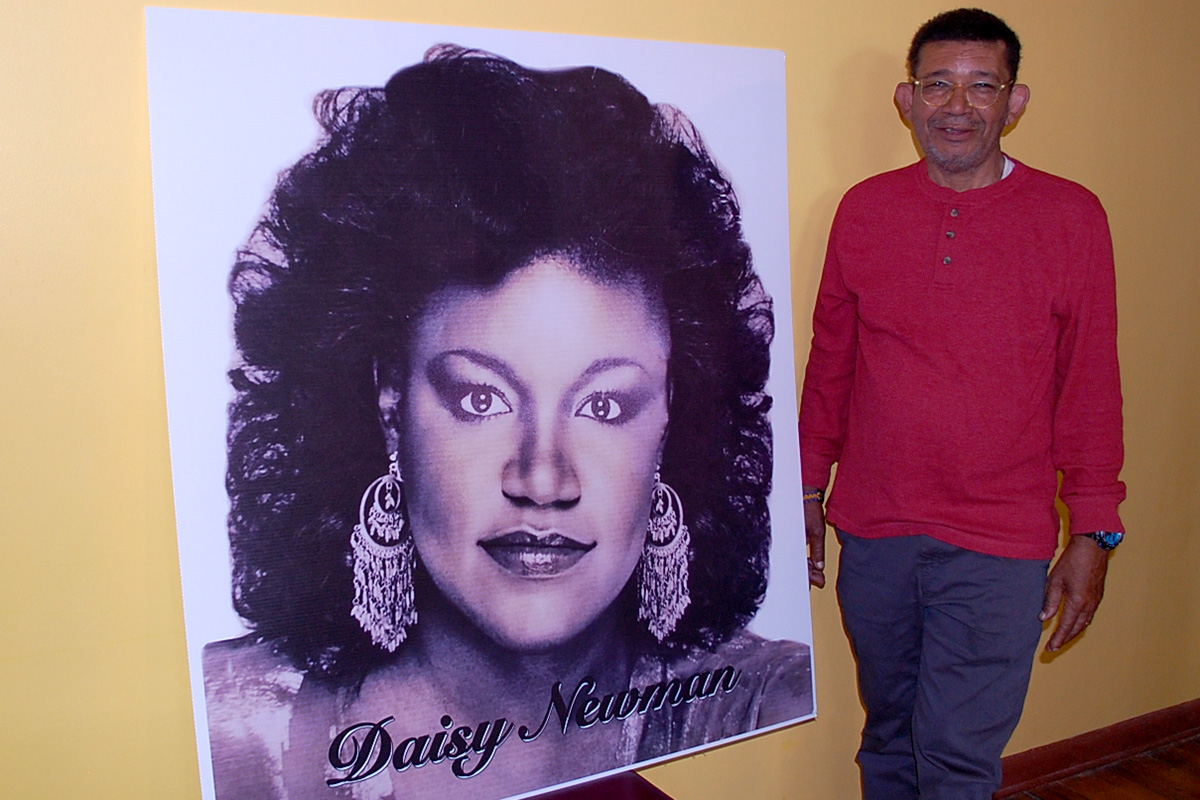
Newman, who was born in Natchez on Jan. 5, 1947, died on Feb. 10, 2021, at age 74. During her life, she performed on five continents and was nominated for a Tony award for her performance in “Porgy and Bess.” The exhibit will feature a portrait of Newman first displayed during her memorial service at the Natchez Convention Center, which her sister Dorothy Hills donated to the museum. Videos of Newman’s performances and a biography of her life will also be on display.
“Daisy Newman graduated from high school during a time of turmoil in Natchez, and even then she excelled in school and in her dream of becoming an opera singer,” Dennis says. “She serves as a testament to the education system in Natchez and was a major role model for young people here. Even when she spent time overseas, she always represented Natchez and brought the city with her. She helped keep us on the map and let the world know that international quality performances were coming out of a place like Natchez.
“It brings joy to my life to speak of the type of people Natchez has presented to the country, even when those people have not been represented nearly enough. The African American community continues to contribute great minds that never forget where they came from or what they developed through. We want to focus on those individuals here, rather than on events and buildings, and show people the experience of growing up and being part of building Natchez.”
Visitors can view the “Black Butterfly” permanent exhibit at the Natchez Museum of African American History and Culture (301 Main St., Natchez). For more information, visit visitnatchez.org or call 601-445-0728.
Black History Tours at Concord Quarters
Deborah and Greg Cosey, owners of Concord Quarters—the slave quarters of what was once Concord Manor and the only free-standing slave dwelling in Mississippi listed in the National Register—are hosting a series of Black History Tours through the end of February. The property, which now serves as a bed and breakfast and event space, honors the more than 124 enslaved African American men, women and children who lived in the quarters, a release from Visit Natchez says.
“People often come to Natchez to see all the antebellum homes, but when you come here, it’s not for plantations, it’s for things like the kitchens,” Deborah Cosey says. “There are no old parishes left on display here. We tell stories and give honor to the enslaved African Americans kept here, and we do it our way to keep it as personal as possible.
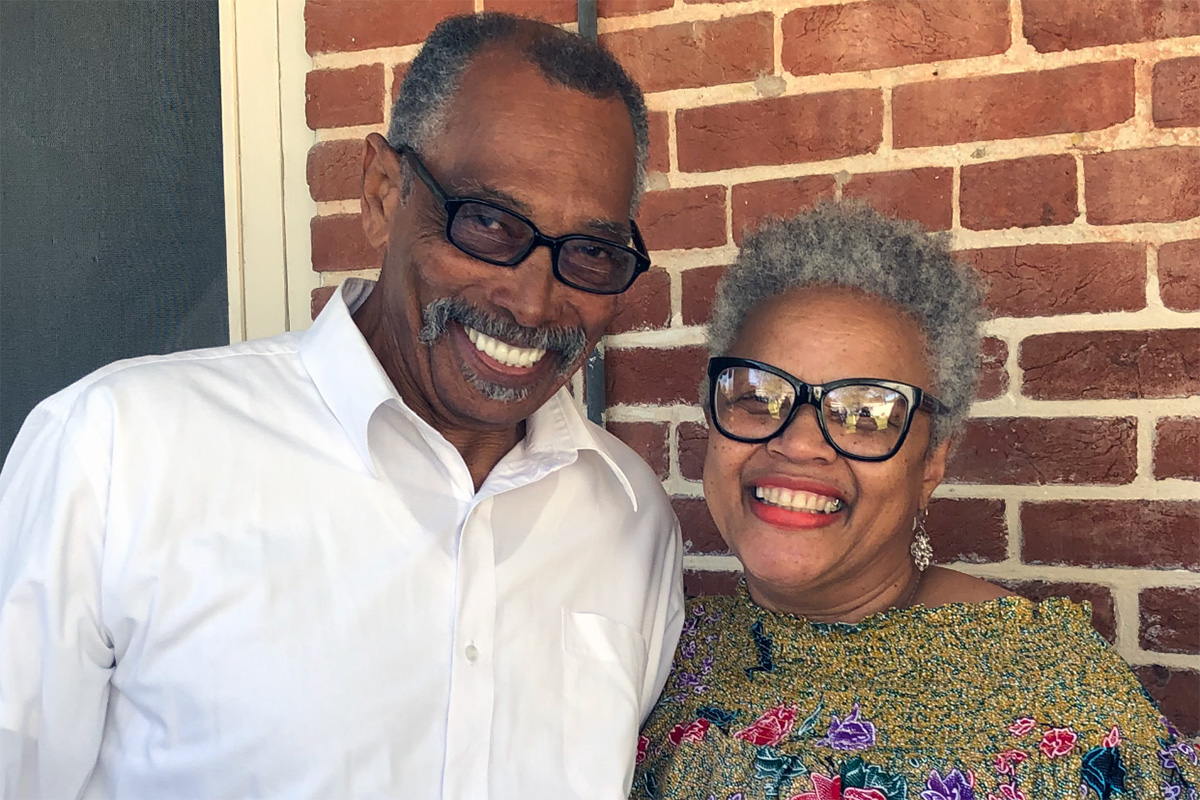
“Usually a slave dwelling was just part of a larger complex, meaning it meant nothing to the people who owned the property back then. Now though, my husband and I feel like this dwelling is worthy of preservation and want anybody who visits to know its history.”
Concord Quarters is located at 301 Gayoso St. in Natchez. For more information or to schedule a tour, visit concordquarters.com, call 601-442-5687 or email concordquarters@gmail.com.
First Creative Arts and Culture Celebration
In addition to the Black History Tours at Concord Quarters, the Coseys have partnered with Natchez native cinematographer Elijah Lewis Jr. to host a one-day event on Feb. 26 featuring spoken word, jazz ensemble performances, gospel and blues music, interpretive dance, film screenings and a dinner with food indicative of what slaves at the Concord Quarters would have eaten.

“Natchez was once home to the second-largest slave market in the country behind New Orleans,” Cosey says. “We want the Quarters to serve as a place of healing for the ugly past and a place where we can show people both how far we’ve come and how far we have to go. Even Black History Month itself has come a long way from what was once just Negro History Week during the 1920s, and this is our chance to commemorate that progress and our history.”
The event, titled the First Creative Arts and Culture Celebration, will similarly take place at Concord Quarters (301 Gayoso St., Natchez). For more information or to purchase tickets, visit concordquarters.com, call 601-442-5687 or email concordquarters@gmail.com.
The Enslaved Journey by Rev’s Country Tours
Rev. Tracy A. Collins, owner and operator of Rev’s Country Tours, will provide cultural heritage tours throughout February focused on the history of slavery and periods up to the Civil Rights Movement in Natchez. Collins’ tours cover locations such as the Melrose Estate, Stanton Hall, the Rosalie Mansion, the Forks of the Road slave market, the Under-the-Hill Saloon, the Natchez City Cemetary and more.
“These tours will focus on the Black history of Natchez,” Collins says. “All too often when people think of Natchez they think of the historic antebellum homes, and while they are important, writers and academics have said that it’s time to tell the full story, which includes people of African descent, the slavers and the free Blacks.
“I feel it’s important to take everything in context, and that it’s a disservice to America not to consider the evils of its past. The goal here is not to make anyone feel guilty or ashamed, but history is history and the victors often rewrite that history. We have to tell the truth, to see the real Mississippi and not water it down. The focus here is the truth, the whole truth and nothing but the truth.”
Tours are available by appointment only and start at the Natchez Visitor’s Center (640 S. Canal St., Natchez). For more information or to schedule a tour, visit revscountrytours.com, call 601-807-5337 or email tracolli6@aol.com.
“Today we are still learning from local historians and academics in order to understand the full story of Natchez,” Barnes says.
“We want to find and promote the truth with people in and outside of the city because it’s a story that needs to be told. We support local organizations and properties in discovering and sharing this story with a larger audience so people can come and be inspired when they learn more about Natchez.”

